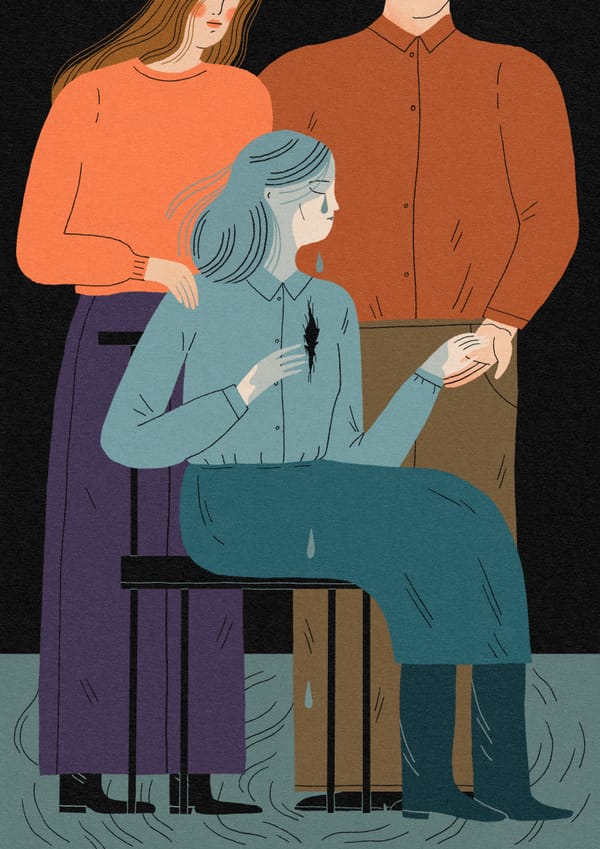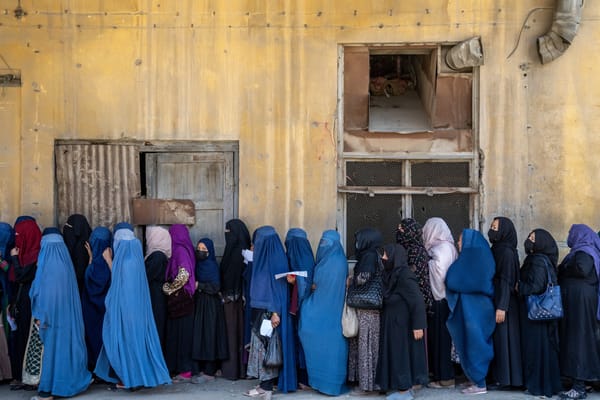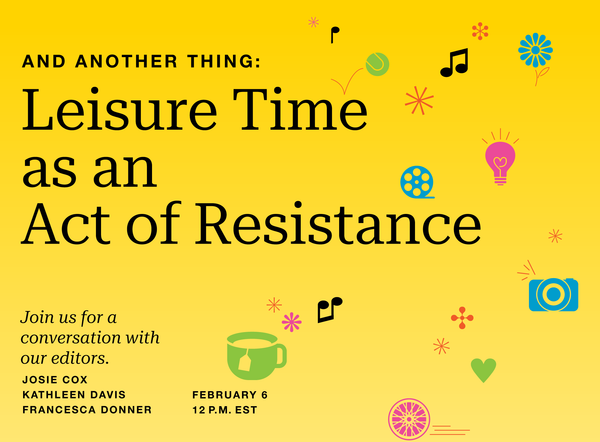'When Gisèle Pelicot Speaks, People Listen'
Nearly a year on from the historic landmark verdict in the Pelicot drugging and rape trial, some things really have changed.
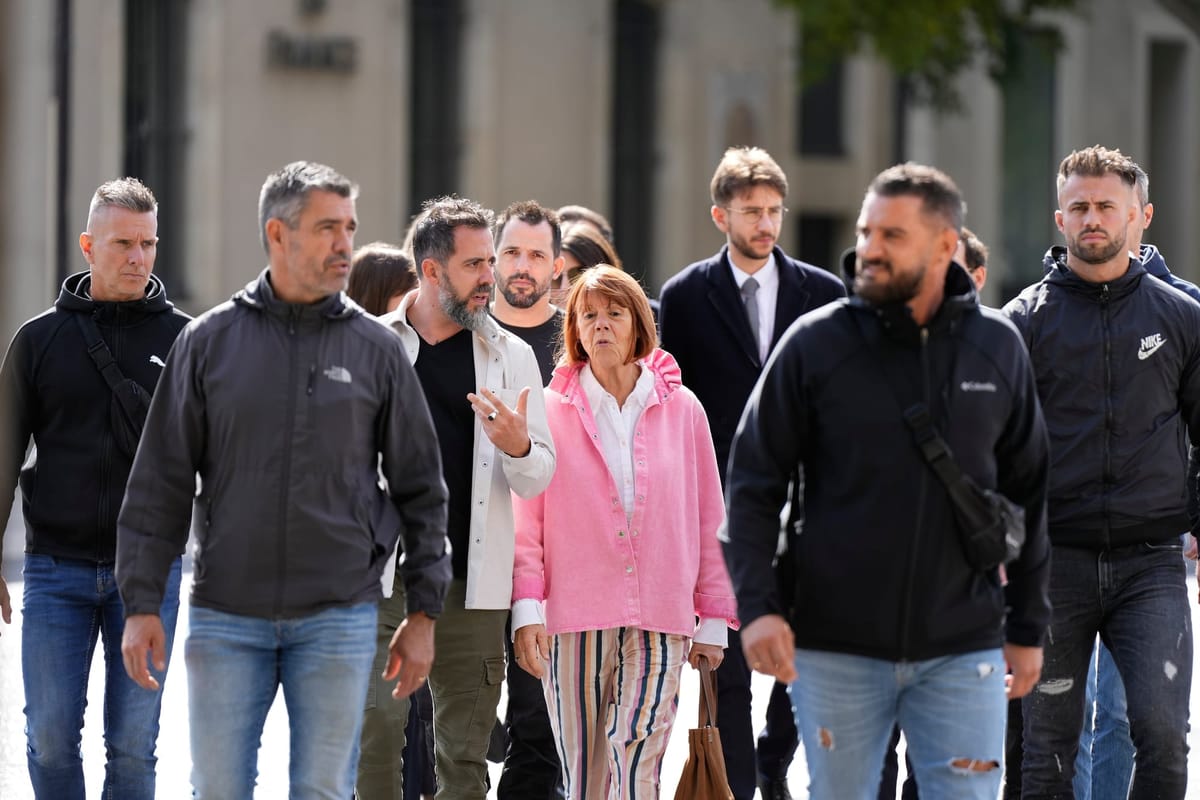
Gisèle Pelicot—the French woman who was sexually assaulted by 51 men over the course of a decade—was back in court last week when one of her rapists appealed his verdict. At first glance, the trial, held in southern France, looked to be a pointless waste of time and money. The man’s defense was essentially the same as the one he had presented a year earlier, and he had doubled down on his denial of rape.
And yet.
A surprise mid-trial ruling to limit what information the defense could introduce indicated that France has, in fact, made progress in the way it treats rape victims.
Here’s what happened: On the third day of the appeal trial, defense lawyers sought to introduce videos of Gisèle Pelicot that were either sexually explicit or in which she was nude and which were possibly taken with her consent. The material was included in the investigation file and had been shown in the original trial last year.
This time around, Gisèle’s lawyers, hoping to spare their client further humiliation, asked that the court deny the defense request. To make their argument, Gisèle’s lawyers relied on a European convention intended to protect victims from being subjected to further suffering during the judicial process.
After a brief recess, the court ruled that the videos of Gisèle were an “unjustified invasion of privacy” and would not be shown.
“To my knowledge, this is a historic decision which, from tomorrow onwards, will certainly be invoked every day in every courtroom in France, with varying degrees of success, but a breach has finally been opened,” said Antoine Camus, one of Gisèle Pelicot’s lawyers.
The background
The defendant, Husamettin Dogan, 44, was convicted of aggravated rape in a court in Avignon last December, along with 50 other men who had met Dominique Pelicot in an online chatroom and had accepted his invitation to come to the Pelicots’ home in the Provençal town of Mazan to rape Dominique’s wife. To facilitate the abuse, Dominique Pelicot crushed up anti-anxiety drugs and sleeping pills and slipped them into his wife’s drink or food without her knowledge. He filmed the assaults.
The court sentenced Dominique Pelicot to the maximum penalty of 20 years and the other men to jail terms ranging from three to 15 years. At the time, Dogan argued that he had been manipulated by Pelicot who, when Dogan told him that his wife appeared to be “dead,” assured Dogan that everything was fine. He, too, was a victim, Dogan insisted. “I don't accept being called a rapist. I'm not a rapist. That's too heavy a burden to bear,” he had testified.
The court saw otherwise; Dogan, an unemployed builder and a married father, was found guilty and sentenced to nine years in prison. He appealed both his verdict and his sentence, the only one of the convicted men ultimately to do so.
The appeal trial which was held in Nîmes and which ended last Thursday, was largely a case of déjà vu. Once again, the court aired videos of Gisèle Pelicot’s slack, nearly comatose body being penetrated vaginally and orally while she snored loudly—14 of them, this time, filmed over the course of three and a half hours, according to police. And once again, Dogan maintained that he, too, was a victim. “For me, I did not commit rape,” he said during the appeal proceedings. “I engaged in a sexual act, I never raped anyone.”
Dogan was again found guilty, and his sentence was increased to 10 years in prison.
Not the same Gisèle
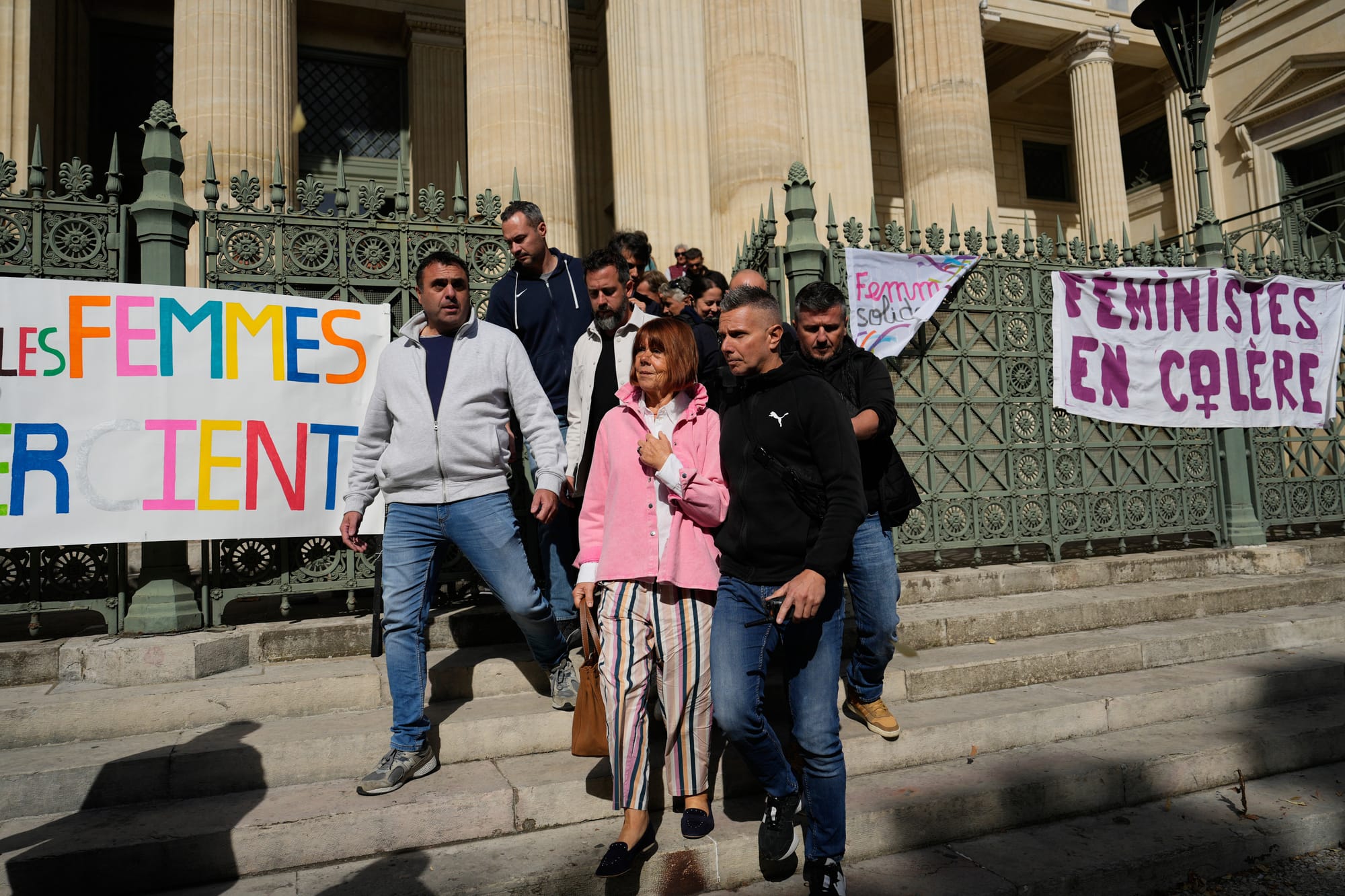
There were important differences between the two trials. For one thing, the Gisèle Pelicot who testified in Nîmes last week was not the same Gisèle Pelicot the world met a year earlier during what the press here referred to as the “Mazan trial.” That Gisèle was steely, resolute and self-contained. This time, Gisèle was exasperated, angry and indignant. She didn’t hold back.
“At what point will you recognize that you raped me? At what point did I give you my consent? Never. I’m ashamed for you,” she said to Dogan, who didn’t look at her as she spoke. “You say you are a victim. A victim of what? The only victim in this room is me.”
But the more salient evidence of progress came when defense lawyers sought to show the jury sexually explicit videos of Gisèle that had no connection to any of the crimes or to the accused. When they were displayed in the Avignon courtroom in 2024, Gisèle’s lawyers didn’t think there was much they could do to stop it given the broad leeway defendants are given in France.
This time, with Gisèle Pelicot now an icon of bravery and a symbol of victims’ rights, her lawyers took a different approach.
“These videos have no direct link to the circumstances of the offense being prosecuted, and no demonstration has been made of their necessity to the manifestation of the truth,” Stéphane Babonneau, Gisèle’s other lawyer, told the court. “These images are unrelated to the acts committed.”
Babonneau cited the 2011 Council of Europe Convention on Preventing and Combating Violence against Women and Domestic Violence—better known as the Istanbul Convention—which was ratified by France in 2014. The convention requires signatory states to “ensure that…evidence relating to the sexual history and conduct of the victim is admissible only when relevant and necessary.” It further states that signatories must “protect victims…from intimidation, secondary victimization, and repeated victimization during investigations and judicial proceedings.”
Secondary victimization is the additional suffering caused to victims of sexual violence during the judicial process.
That Gisèle’s lawyers would cite the convention shows how the French judiciary has evolved in the past year. When it was suggested to Gisèle’s lawyers, Camus and Babonneau during the 2024 Avignon trial that they might do so, they laughed, Babonneau said. That’s how rarely was the convention mentioned in court and how irrelevant it seemed. But by opening her first trial to the public Gisèle had cast a light on the mistreatment of rape victims and brought the issue into the public consciousness. The judiciary took notice.
Secondary victimization makes its mark
Just months later, when the actor Gérard Depardieu was found guilty of sexual assault in May, the court ruled that his lawyer had been “excessively harsh” with Depardieu’s two accusers and that Depardieu must compensate them for secondary victimization. Secondary victimization has been part of the jurisprudence of the European Court of Human Rights since 2015, but the Depardieu decision marked the first time a French court explicitly acknowledged the concept in a ruling.
“In [Avignon] we saw that a victim could be mistreated and attacked even when it was obvious that she was a victim…then there was Depardieu, the first shift. And now we see that it continues with Dogan,” Babonneau said. “In my view, there is clearly a link.”
Gisèle’s public humiliation at the hands of defense lawyers at the Avignon trial in 2024 was an “electroshock” for France, Babonneau said. The Depardieu trial was the first time someone was sanctioned for secondary victimization. And now with the Nîmes trial this past week, it’s the first time that elements linked to the private life of a victim were rejected by the court as “non-pertinent,” Babonneau said.
“There’s really been a virtuous circle, so to speak, since [Avignon], where magistrates have paid more attention to this issue because it exploded in full view of everyone,” said Marion Dubreuil, a longtime judicial journalist and the author of “Mazan, la Traversée du Styx” (“Mazan, Crossing the Styx”), a book about the treatment of victims in the French judiciary and the impunity afforded to perpetrators. “Up until this point, I had never seen a magistrate refuse to show images on the grounds of invasion of privacy of the [victim].”
While the judicial treatment of victims had been slowly improving in recent decades, Gisèle’s insistence that her trial be open to the public because it was her rapists who should feel shame and not her, marked a giant step forward. “When she says, ‘I felt humiliated in that courtroom,’ it resonates and it echoes,” Dubreuil said. “It’s a revolution that has accelerated thanks to the media coverage of [the trial] and thanks to the fact that when Gisèle Pelicot speaks, people listen to her.”



